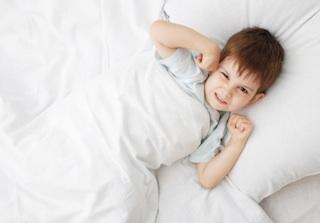 While I love the warmer temperatures spring brings, I am no fan of what the added daylight does to my child’s sleep habits.
While I love the warmer temperatures spring brings, I am no fan of what the added daylight does to my child’s sleep habits.
As an active member of PADS, I cringe when bedtime rolls around. There’s nothing I dread more than having to fight with a third grader about how “unfair” it is that she is forced to hit the hay before it is pitch-black outside. Then there’s the drama surrounding my rule that she remain asleep until at least an hour after the sun rises.
She can’t stand me for that one.
But, when you are dealing with a 5:50 a.m. sunrise, I refuse to negotiate.
Needless to say our spring bedtime battle is well underway, and I will not retreat. After all, I know exactly what happens to my little sleeping beauty if she doesn’t get at least 10 hours of shut-eye each night.
According to experts, babies need between 14 and 16 hours of sleep per day, including naps. Preschoolers should be logging at least 12 to 14 hours of total sleep a day. And elementary-aged kids should be getting 10 to 12 hours per day.
So, how can you achieve this if your child refuses to ignore Mother Nature’s seasonal shifts?
My pediatrician offered the following suggestions:
First, make sure your child’s room is cool and dark. If that means placing a sheet or blanket over blinds, then do so. Next, ensure that your child’s sleep space is as quiet as possible. That may mean lowering the volume of television sets or having older kids with later bedtimes move downstairs. Another essential tool is to create a peaceful bedtime routine. This will give your child’s brain a chance to calm down. Have your son or daughter turn off video games; stop exercising; and curtail any other stimulating activity 30 minutes prior to bedtime, so he or she can relax and prepare for sleep.
If you are still concerned about your child’s sleep habits, consider keeping a log detailing when your child is awake and asleep. After assessing your records you will be better able to determine whether the problem is with sleep or another issue.

